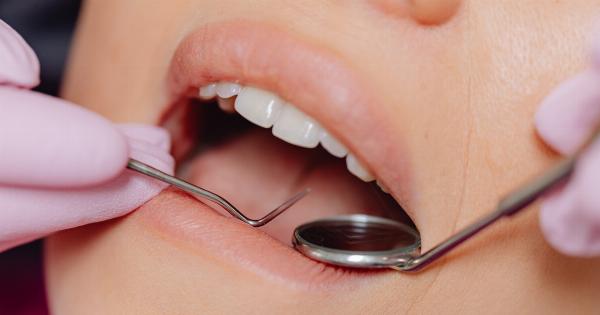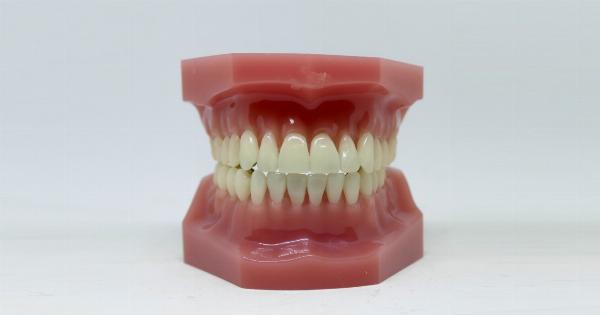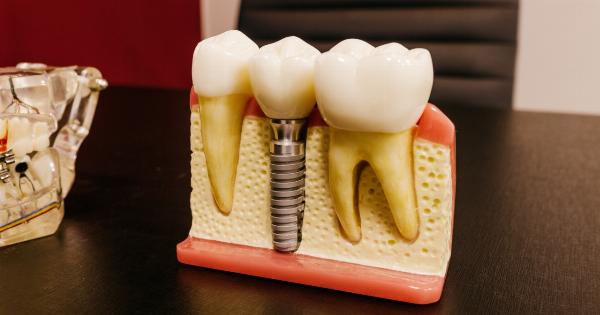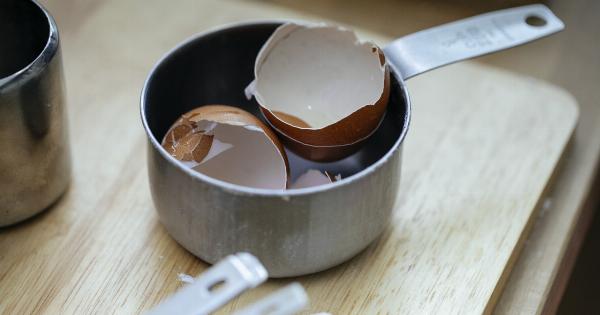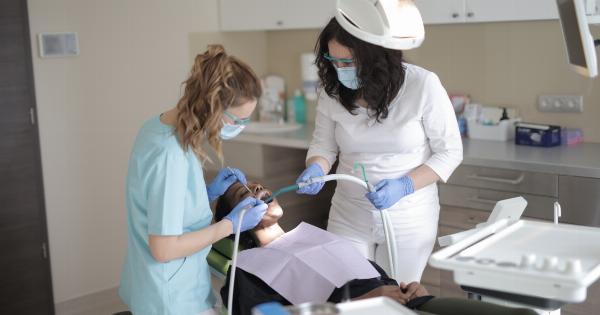If you experience pain or discomfort when consuming hot, cold, sweet or acidic foods and drinks, you may be one of the millions of people with sensitive teeth.
Sensitive teeth can make daily activities, like eating and drinking, an uncomfortable experience. Fortunately, there are several tips you can follow to help combat this issue, so you can enjoy life without sensitive teeth. Here are six tips to help stop suffering from sensitive teeth:.
1. Use a Toothpaste for Sensitive Teeth
Using a toothpaste specifically designed for sensitive teeth is the most effective method to reduce tooth sensitivity. These toothpastes contain potassium nitrate, which is an ingredient that helps to desensitize the nerves in the teeth.
By using this toothpaste, you can provide immediate relief to your sensitive teeth. It is recommended to use such toothpaste at least twice a day for several weeks before deciding whether or not it’s effective.
2. Stop Grinding Your Teeth
Grinding your teeth can cause tooth sensitivity. If you grind your teeth, you put excessive pressure on your teeth, and this can wear away the enamel.
When the enamel of your teeth wears away, your teeth become more susceptible to temperature and pressure changes, including those that cause sensitivity. Talk to your dentist about getting a mouthguard that can be custom-fit to help protect your teeth from grinding while you sleep.
3. Change Your Diet
If you’re experiencing sensitive teeth, you should try adjusting your diet. Avoid foods that are high in acidity, like citrus fruits, or foods that are too hot or too cold. Additionally, try to eat fewer sugary foods and drinks.
By minimizing acidic and sugary foods and drink in your diet, you can help prevent your sensitive teeth from getting worse. Plus, by eating a balanced diet you can help maintain good oral hygiene and overall dental health, which can reduce the risk of developing more dental problems.
4. Use a Soft-Bristled Toothbrush
Choose a toothbrush with soft bristles and avoid brushing too hard. A hard-bristled toothbrush can wear down your enamel and cause sensitivity. It’s better to brush your teeth gently using a soft-bristled toothbrush twice a day.
Remember to also use the right brushing technique. Brush your teeth in small, circular motions, and take the time to brush each tooth thoroughly. This not only fights sensitivity, but it can also help remove plaque, tartar, and stains from your teeth for a brighter, healthier smile.
5. Use Fluoride Rinse
Using a fluoride rinse can be a helpful step to prevent and reverse tooth sensitivity. A fluoride rinse works by depositing fluoride onto your enamel, which helps to rebuild and strengthen it.
Using a mouthwash once a day or as recommended by your dentist can help make your teeth healthier, stronger, and less prone to sensitivity.
6. Visit Your Dentist Regularly
One of the most important things you can do to fight sensitive teeth is to see your dentist regularly. Make sure you’re going to a dentist who has experience treating patients with sensitive teeth.
Your dentist can check your teeth for any underlying issues that could be causing your sensitivity. They can also apply fluoride varnish or recommend other treatments or adjustments, like a sealant, that can help curb your tooth sensitivity. You should make it a point to visit your dentist at least twice a year for regular check-ups.
By following these six tips, you can reduce your chances of developing tooth sensitivity and improve the overall health of your teeth. Remember, it’s important to address sensitivity early on before it becomes more severe.
Don’t wait until the pain becomes unbearable. Follow these tips and make sure you’re diligently caring for your teeth to ensure that you can enjoy your favorite foods and drinks without any discomfort.





